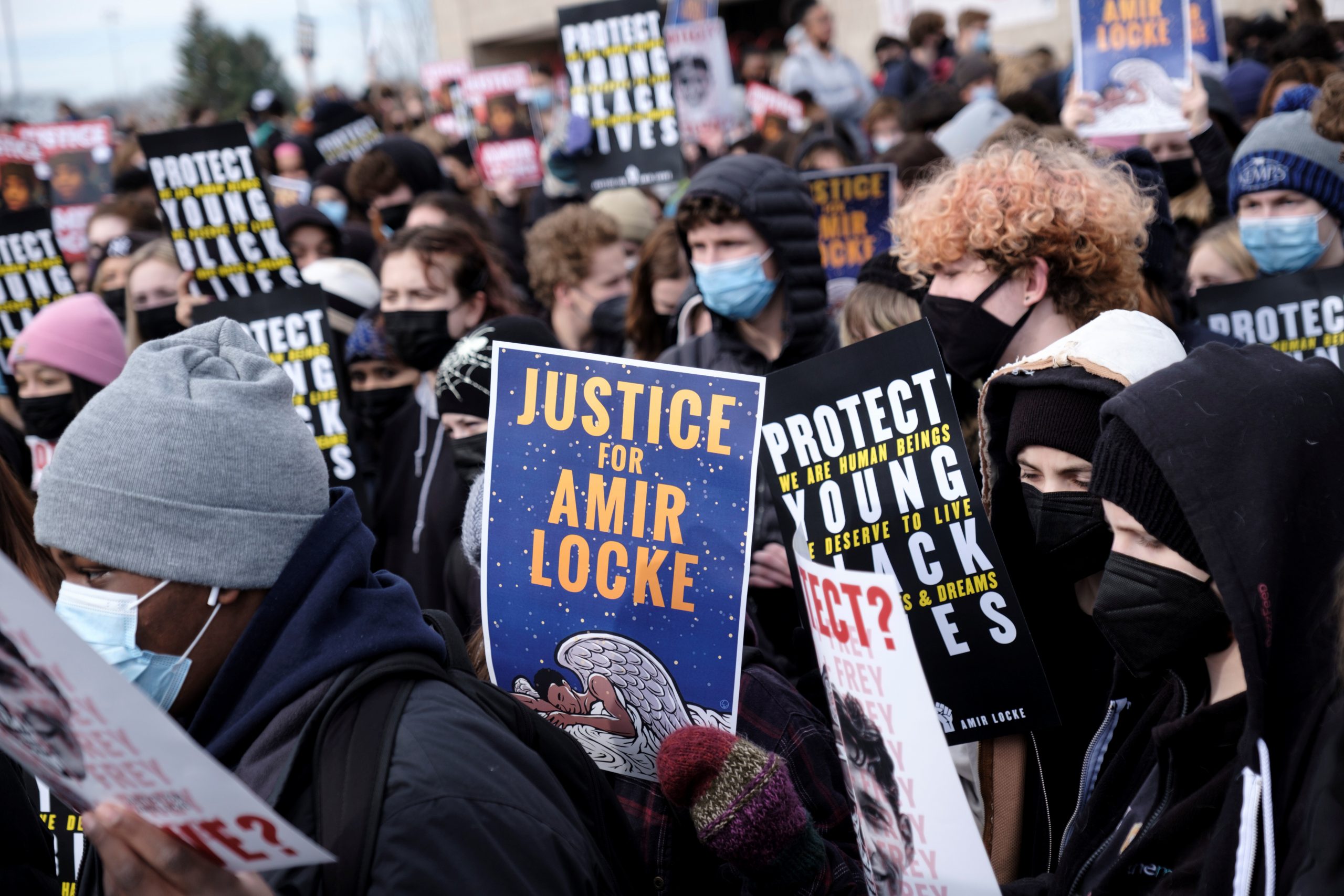
FISM News Staff
[elfsight_social_share_buttons id=”1″]
A Minneapolis police officer will not face criminal charges for fatally shooting a 22-year-old black man during a no-knock raid on an apartment in February, state and local prosecutors said on Wednesday.
According to a statement from Minnesota Attorney General Keith Ellison and Hennepin County Attorney Michael Freeman, there was “insufficient admissible evidence” to bring charges against Mark Hanneman, the member of the Minneapolis SWAT team who fired the shot. The statement also noted that Locke was a victim in the case, as he was not a suspect or listed on the warrant that brought the police to the apartment where he was killed.
Ellison and Freeman placed the blame of the tragedy on the allowance of no-knock warrants, stating, “This tragedy may not have occurred absent the no-knock warrant used in this case.”
The Minnesota Attorney General’s office detailed the events of the case that led to the death of Locke:
On February 2, 2022, around 6:47 a.m., at the request of Saint Paul Police, a Minneapolis SWAT team executed a no-knock search warrant on an apartment unit in downtown Minneapolis. Police body-worn camera video shows that nine officers entered the apartment unit, each announcing “police, search warrant” as they entered. Video shows an individual, who we now know was Amir Locke, looking over the back of a couch at the officers before ducking down and beginning to move around under a blanket as the officers continued into the apartment. Video shows that officers yelled additional overlapping commands such as “show your hands” and “get on the ground” as they entered the apartment. Video shows Mr. Locke under the blanket holding a firearm that was initially held parallel to the ground before being dropped to about a 45-degree angle, then being raised again in the direction of Officer Hanneman. Officer Hanneman then fired three shots, killing Mr. Locke.
Based on the facts of the case the AG’s office concluded that Hanneman had acted in accordance with federal law allowing an officer to use deadly force if it is believed to be “necessary to protect the peace officer or another from death or great bodily harm.”
The state also said it lacked evidence to prove criminal wrongdoing by any of the officers involved in the planning and execution of the Feb. 2 raid, according to the statement.
The killing was the most recent police shooting that prompted outrage and riots across the U.S., following the deaths of George Floyd, Daunte Wright, and Breonna Taylor.
Following the announcement, Ellison, a former U.S. congressman, called on lawmakers at the local and national levels to consider whether to ban no-knock warrants because of the inherent risks.
Locke‘s shooting led to community calls for a ban on no-knock warrants, prompting Minneapolis Mayor Jacob Frey to place a moratorium on the practice in February. Strict limits on the practice are set to go into effect this week, local media reported.
In the Locke case, a judge approved the warrant on the apartment as part of an investigation into a previous fatal shooting in neighboring St. Paul, saying it was necessary to protect officers searching the property.
This article was written with contributions from Reuters.
